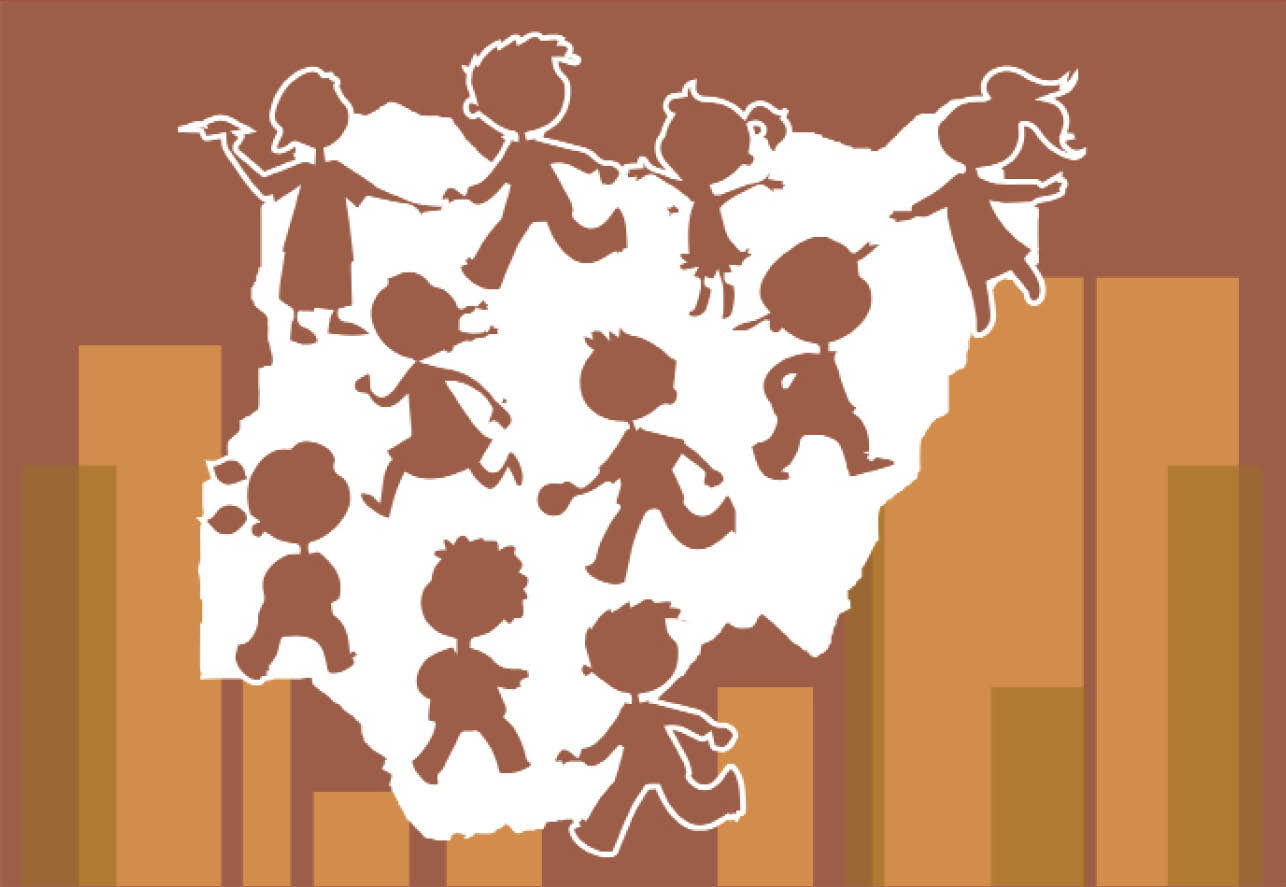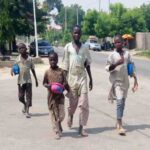Thursday last week May 27, 2021 was Children’s Day in Nigeria. The United Nations General Assembly on November 20, 1954 adopted the Declaration of the Rights of Children. The day was consequently declared as “International Children’s and Youths Day” even though member countries were free to mark the Day on different dates that may be convenient for them. The event is observed in Nigeria on May 27 every year.
Besides appraising children’s access to education and other basic needs of life, the Day is also used to draw governments’ attention to the protection of children from dangerous conditions that hamper their chances of exploring their potentials.
- Facebook slams two-year ban on Trump
Nigerians opt for Virtual Private Networks as FG suspends Twitter
In the past, it was a day that children looked up to not only for the activities and fun that came with the Day but also for the attention, love and concern shown to them by government on Children’s Day. Six decades ago, the Nigerian child had unhindered access to quality education and healthcare, which were then free in northern states of Nigeria. However, the dismal and cheerless manner in which the Nigerian child was treated in recent years on the occasion of the annual Children’s Day persuasively calls for deep reflections by leaders who have legitimate mandate to decide the fate of children in Nigeria.
As primary schoolboys in the 1960s through the early part of the 1970s, we closed early from school on the eve of Children’s Day. The headmaster would ask the school time-keeper to ring the last bell of the day during short-break. We would gather at the assembly ground where the headmaster would instruct us to go home early to wash our school uniforms, cut our over-grown finger nails, shave our heads, and amend our lanced footwears. Usually, we returned to school at 4.00pm for march-past rehearsals. School prefects were our guide in the match-pasts, and no pupil dare misbehaved to the prefects.
On Children’s Day, anyone who arrived school at past 7.00am was late. At the assembly ground, our teachers would inspect us. Those found dirty were punished and sent back home. Short rehearsals of match-past were again held before we moved to the biggest football field in town, which served as the town’s parade ground. At the parade ground, the Divisional Secretary (DS) supported by the Divisional Police Officer (DPO) would read a speech and later take salute during the match-past by schoolchildren. When Nigeria returned to democratic rule in 1979, this function was performed by the Local Government Chairman. In the late 1970s. Three categories of prizes were awarded to the schools that respectively came first in match-past, neatness, and discipline. The match-past was followed by visit by the DS and other dignitaries at the parade ground to inspected arts and crafts materials displayed at exhibition stands by pupils from various schools. Prizes were awarded for best the material in drawing, painting, weaving, and carving.
Between 4.00 and 6.00pm of the Children’s Day, finals of select sports competitions among primary schools in the locality were held. They include 100m sack-relay (loping in a sack that looked like a postbag); 100m egg-carrying relay; and a 30-minute novelty match between the DS’ team and schoolchildren, which ended Children’s Day celebration during our time. As a primary school teacher in 1979, I remember that about 5 or 6 schoolchildren were selected to participate in the match-past at the state capital where they were also hosted to a children’s party by the governor’s wife. With these merrymaking activities, Children’s Day couldn’t have passed schoolboys and girls unnoticed.
As witnessed in the past one decade, this year’s Children’s Day was devoid of nearly all the usual activities that provided excitement to schoolchildren. Neither the rhythms from school-bands nor the annual ritual of match-past were heard or seen in most cities and towns across the country. What remains of Children’s Day (for children who are aware of it), is that the Day is lesson-free. Except for those of them that attend schools where fees are paid in dollars or Euros; very few Nigerian children would have had any cause to celebrate the 2021 Children’s Day. The out-of-schoolchildren in their huge numbers and others who are victims of insurgency, poverty, hunger, disease, squalor, and destitution couldn’t have been part of any celebration. This group of vulnerable kids who spent most part of May 27, 2021 begging on the street, hawking at motor parks, or scavenging at refuse dumpsites were actually far from the fun of Children’s Day. This is the quality of young people that our leaders who call children ‘leaders of tomorrow’ are preparing for Nigeria’s future.
Having become more vulnerable than imagined, lack of access to quality education and primary healthcare are two essential factors that define the plight of today’s Nigerian child. It is shameful that northern governors have allowed the inexcusable almajiri phenomenon to remain intractable in the same region where search for knowledge, ingenuity, hard work and honesty once ruled people’s lives. In the case of Nigerian children attending schools, they suffer from the critical challenge of poorly-trained teachers and lack of basic facilities needed for effective teaching and learning to take place. School buildings are dilapidated, library and laboratory materials are either obsolete or non-existent. Where parents cannot provide classroom furniture, children sit on bare floors or share desks; sometimes under a tree. Incessant strike actions by teachers often keep schoolchildren at home for most part of the academic year; an action they often blame on poor remuneration or unpaid salaries. Yet, we expect this group of children to compete with their counterparts in countries where education is a serious business.
The refusal by 11 states to domesticate the Child Rights Act, 18 years after it was passed by the national assembly is condemnable. The persistent failure by most states in to access counterpart funds from the Universal Basic Education Commission is one ominous injustice done by culpable state governments to the Nigerian child. Relevant agencies need to be more proactive in combating child-trafficking, child-abuse, drug and substance addiction among youths, and rape of minors. Parents who put the search for wealth, power or other interests above the education, care and love due to their children are not only endangering the future of their children but also ‘writing’ a sorry history of themselves.
May Allah guide our leaders to stop paying lip services to the needs of the Nigerian child; and inspire parents to eschew dereliction of their basic responsibilities as fathers and mothers, amin.

 Join Daily Trust WhatsApp Community For Quick Access To News and Happenings Around You.
Join Daily Trust WhatsApp Community For Quick Access To News and Happenings Around You.


